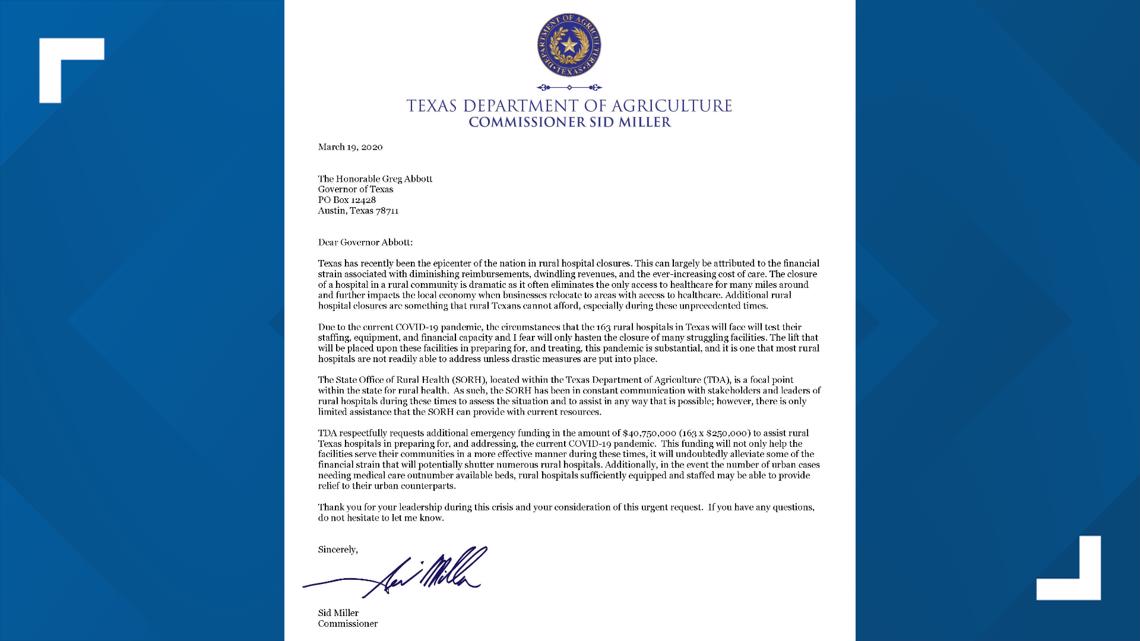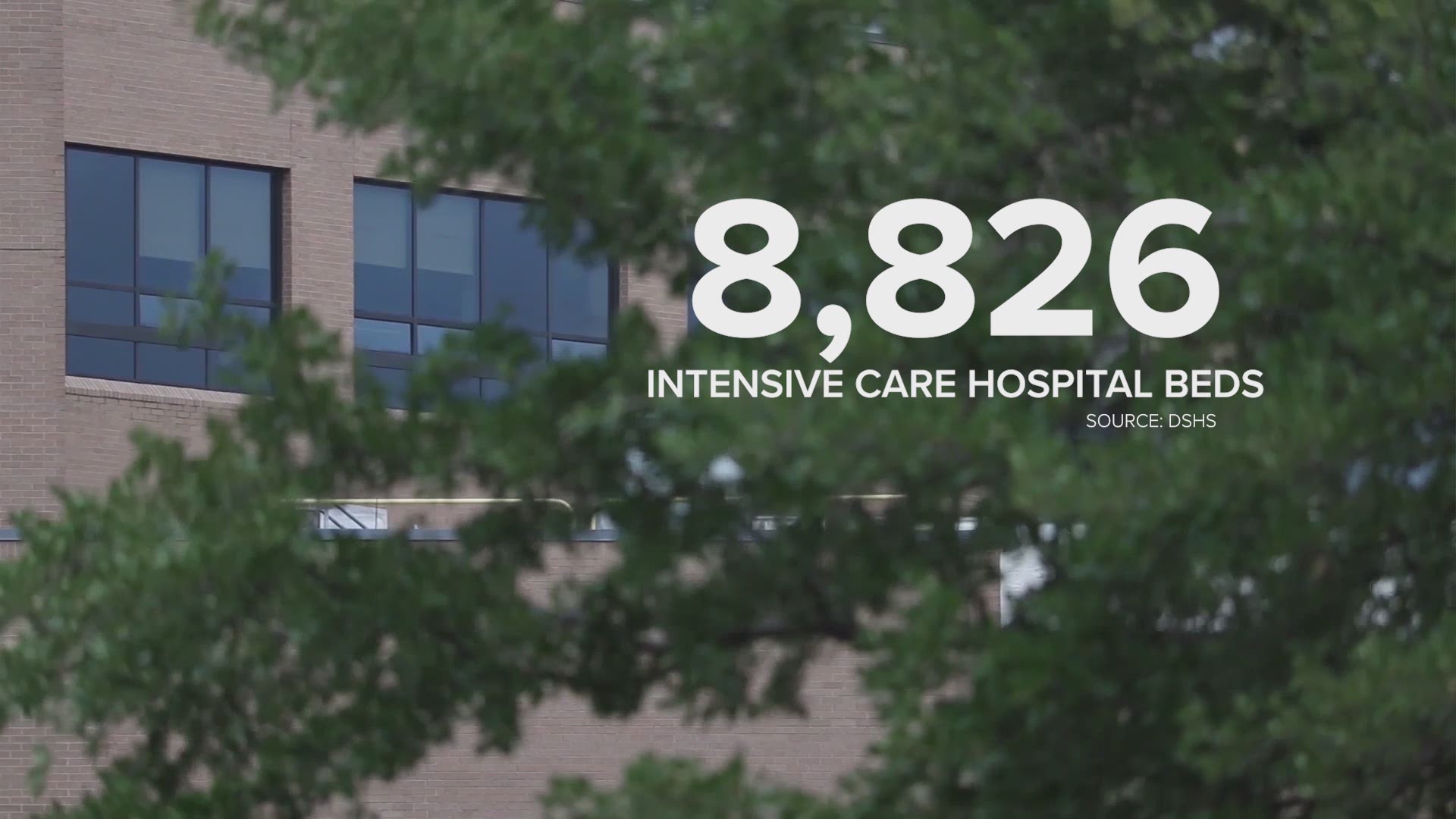AUSTIN, Texas — Texas hospitals collectively hold about 8,826 intensive care hospital beds, according to The Texas Department of State Health Services (DSHS).
Those numbers do not reflect the availability.
When the data is broken down to hospitals or regions, much of the rural areas are left without care needed to treat any serious cases of COVID-19.
“We really struggle in rural Texas. We have the highest uninsured rate. We have the most elderly population,” said Sid Miller, commissioner for Texas Department of Agriculture (TDA).
TDA runs the Texas State Office of Rural Health (SORH).
“They just need cash to keep the doors open right now because they’re kind of overwhelmed and understaffed,” said Miller.
The average distance for someone out in the country to reach a critical care center is 35 miles.
“Sometimes it's more than 100 miles just to have a baby,” said Miller.
Texas Gov. Greg Abbott announced a temporary waiver for hospitals. Hospitals can set up tents and increase bed capacity without filing certain applications nor paying associated fees.
But adding beds doesn’t fix all the healthcare needs.
“Frankly, the biggest challenges most hospitals are concerned about is staffing these folks who are doing this,” said Marc Boom, president and CEO of Houston Methodist Hospital.
Nursing unemployment rate nationwide is 2.5%. It’s hard to find workers.
"There's a critical shortage of doctors, nurses, pharmacists all across Texas," said Miller.
Due to a growing concern about the nursing shortage in Texas, the Texas Legislature created The Texas Center for Nursing Workforce Studies (TCNWS).
The data from the center includes supply and demand information, workplace violence and demographics of nurses.
Miller requested more than $40 million to help rural hospitals treat patients with COVID-19.


To compound on the shortage, skills for health care workers are specialized. Not all nurses can treat all kinds of patients.
“Really keeping them healthy is a big priority of ours so they can care for people even in those surge capacity situations,” said Boom.
The governor’s waiver also allows healthcare workers from out of state the ability to practice here if they aren’t needed elsewhere.
PEOPLE ARE ALSO READING:

